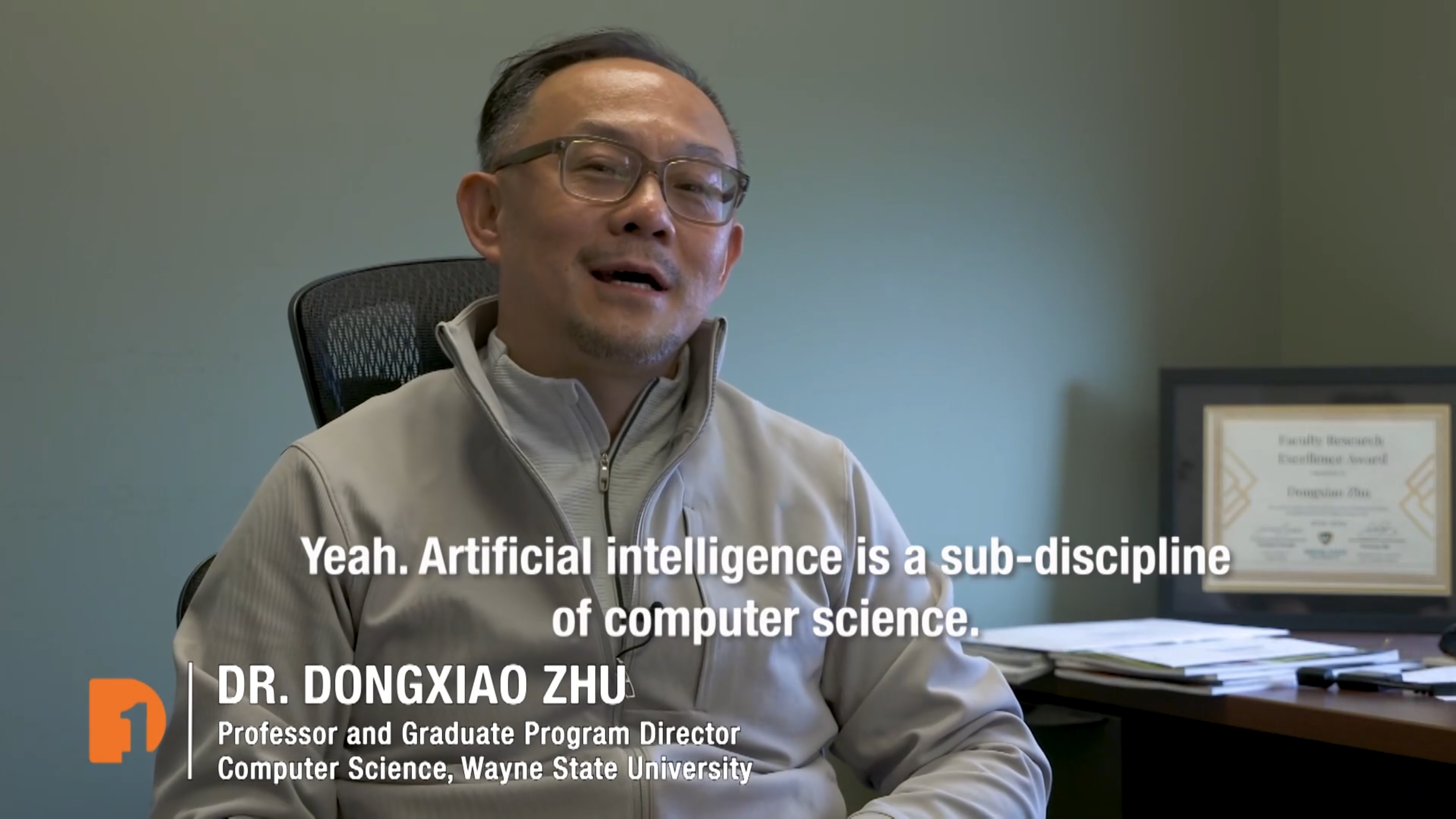March 29 2024
Revolutionizing Public Transit with AI: An Exclusive Interview with Dr. Dongxiao Zhu
On March 29, 2024, Detroit PBS had the opportunity to delve into the fascinating world of artificial intelligence with Dr. Dongxiao Zhu, a professor of computer science at Wayne State University. In a compelling discussion at the Wayne State Computer Science Building, Dr. Zhu shared insights into how AI is shaping various industries and specifically how his team is leveraging it to enhance public transit in Detroit.
Through the interview, Dr. Zhu explained the basics of AI and its expansive potential, not just in technology but in practical, everyday applications. He highlighted his team's ongoing project under the Civic Innovation Challenge, which is developing an AI tool designed to improve the efficiency and accessibility of public transit. This tool aims to accommodate a broader range of commuter needs, including those of people with disabilities, by optimizing bus routes and ensuring timely service.
Furthermore, Dr. Zhu touched on the broader implications of AI in the workforce and addressed common concerns about AI and employment. His optimistic outlook on AI's role in societal advancement, particularly in making mobility more inclusive and accessible, was evident as he discussed the ongoing advancements and future potentials of AI in public transit.
This interview not only underscored the transformative impact of AI on urban mobility but also showcased Dr. Zhu's commitment to using technology for social good. As AI continues to evolve, it promises to bring significant enhancements to how we navigate our cities and manage public resources effectively.
October 27 2022
How Artificial Intelligence is Changing the Future of Medicine
At Wayne State University, significant advancements in AI applications in medicine are spearheaded by Professor Dongxiao Zhu, the founding director of the Wayne Artificial Intelligence Research Initiative. Zhu's research primarily focuses on utilizing machine learning to predict specific cancer occurrences and the outcomes of COVID-19 in children. His next goal is to leverage AI for processing and analyzing complex medical images, pushing the boundaries of how AI can support clinical diagnostics and treatment planning.
Alongside Zhu's contributions, the university's overall efforts in AI research are further highlighted by Dr. Phillip Levy, who is developing models to predict health risks like heart disease and strokes by analyzing data patterns. This demonstrates the university's critical role in advancing medical AI technologies.
These initiatives at Wayne State University are part of a broader movement within the medical field to integrate AI into clinical settings. Dr. Cornelius James of Michigan Medicine emphasizes the importance of educating clinicians on the benefits of AI, advocating for its use to enhance healthcare rather than viewing it as a hindrance. Through the work of researchers like Zhu and Levy, AI is poised to transform medical specialties, augmenting human capabilities and improving the efficiency and effectiveness of patient care.
February 05 2021
Wayne AI Researchers Outreach to Local Stakeholders to Develop Innovative Social Technology for Enhancing Mobility and Wellbeing of Detroiters
On Feb. 5, 2021, Wayne AI researchers met with local stakeholders to brainstorm the ideas of bringing the new social technology to enhance the mobility and ensure equity of the low-wage workers. COVID-19 disproportionately affects the low-wage workers whose spatiotemporal mobility pattens, e.g., between housing and job, have dramatically changed. These workers typically have to spend excessive amount of time in transit from housing to work, services and amenities, just to name a few. How to leverage the existing public transit to give residents an on-demand, fast and affordable option of connecting to their job locations, allowing them to have faster and reliable access to work, services and amenities that are otherwise not so easily accessible in reasonable travel periods. Developing innovative social technology that are fully assessable and trustworthy to mitigate the underlying the spatiotemporal mismatches has been recognized as a promising and cost-effective solution.
Dongxiao Zhu, AI researcher from Wayne State University, made a presentation describing the vision, goals and expected outcomes of the project. Through the discussion with our civic partners Stacey Matlen from City of Detroit Mobility Innovation Office, Jessica Robison from Michigan Institute of Mobility, and Ray Smith from Mobility Inclusion, the team has identified several strategic priorities. “One of more salient challenges of a new enabling technology is to enhance assessment and build trust with the community,” says Matlen, Senior Mobility Strategist, Office of Mobility Innovation, City of Detroit. “Developing social technology and multi-channel promotion strategies via smart device, text message and call center to reach unreachable is the key,” says Ray Smith, Director of Community Relations & Government Affairs, Mobility Inclusion. “Low-wage workers often have to transit between suburban regions for their jobs, emphasizing a role of the Regional Transit Authority of Southeast Michigan,” says Jessica Robison, Co-Founder and Board Chair of Michigan Mobility Institute. Researchers Tierra Bills, Marco Brocanelli, Daniel Grosu, and Weisong Shi from Wayne State University College of Engineering participated into the discussion. The team will meet biweekly to report progress, exchange ideas and identify new direction in developing social technology for social good.

